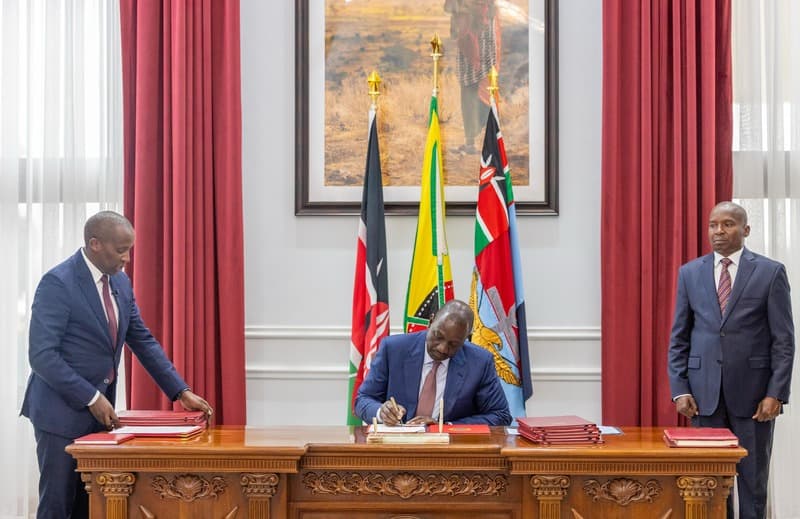We're loading the full news article for you. This includes the article content, images, author information, and related articles.
Nairobi, Kenya — July 30, 2025 — President William Ruto has signed into law two pivotal pieces of legislation: the Social Protection Act, 2025 and the Conflict of Interest Act, 2023, during a ceremony at State House Nairobi .

Nairobi, Kenya — July 30, 2025 — President William Ruto has signed into law two pivotal pieces of legislation: the Social Protection Act, 2025 and the Conflict of Interest Act, 2023, during a ceremony at State House Nairobi .
The Social Protection Act replaces the outdated Social Assistance Act, establishing a rights-based, life-cycle model that broadens eligibility and enhances service delivery :
Expanded eligibility: In addition to the elderly, orphans, and persons with disabilities, the Act now covers individuals affected by extreme poverty, job loss, disasters, pandemics, or other shocks. Even non-citizens impacted during emergencies—such as refugees and asylum seekers—are eligible under specific criteria .
Digital registry: A centralized digital registry replaces the previous physical application process. Applicants can now register online, enabling real‑time tracking and faster service delivery through a coordinated national system .
New National Board for Social Protection: Chaired by a presidential appointee and composed of representatives from national, county governments, and civil society, this board governs program design, monitoring, and grievance mechanisms .
Social Protection Fund: Established under the Public Finance Management Act, this fund pools resources from both national and county governments to finance cash transfers, food assistance, psychosocial support, foster care, and medical services .
County participation mandated: County governments are legally required to co-fund the fund, develop local social protection strategies, maintain registries, and coordinate implementation with national frameworks .
Appeal and oversight provisions: Individuals denied support can request a board review and appeal to the Cabinet Secretary or High Court within 30 days, ensuring accountability for eligibility decisions .
The reforms mark a major shift—from fragmented, location-based assistance to a digitized, rights-based system designed to reach millions more Kenyans in need. By integrating non-cash supports and involving counties in financing and delivery, the Act aims to make welfare more holistic, transparent, and locally responsive.
Given estimates that previous cash-transfer schemes reached under‑30% of eligible households, the digital registry promises improved targeting and reduced exclusion—particularly during emergencies like pandemics or flooding.
Infrastructure gaps: Counties with poor ICT connectivity may struggle to integrate digital systems.
Budgetary pressure: County contributions must be matched by corresponding national disbursements, requiring coordinated fiscal planning.
Capacity building: County officials and Huduma Centre staff will need training on the new digital procedures and compliance requirements.
Concurrent with the social protection legislation, the Conflict of Interest Act, 2023 introduces sweeping reforms affecting public officers—requiring broader asset declarations, prohibiting self-dealing, and strengthening EACC oversight and enforcement capacities .
Keep the conversation in one place—threads here stay linked to the story and in the forums.
Sign in to start a discussion
Start a conversation about this story and keep it linked here.
Other hot threads
E-sports and Gaming Community in Kenya
Active 9 months ago
The Role of Technology in Modern Agriculture (AgriTech)
Active 9 months ago
Popular Recreational Activities Across Counties
Active 9 months ago
Investing in Youth Sports Development Programs
Active 9 months ago